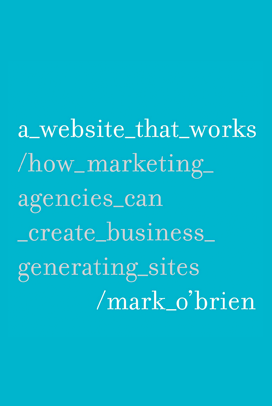What if you could speak with every prospect who was considering hiring your firm? And what if they did not just have thirty minutes or so to speak with you, but instead they had all the time in the world—however long it took you to show them how great your agency is? What would you want to do with that time?
You would want them to get to know you, so that they have a sense of the firm’s vision and the pace being set by the leadership. You would show them your work, taking them through specific examples, explaining to them what the unique challenges were for certain projects and how you solved them. You would probably want to introduce them to your key employees, let them sit with each one and get to know who they are, what they think about, and see ways in which they have helped similar clients. At the end of their visit, you would want to establish ways in which the two of you could keep in touch on a regular basis. You might make promises to let them know when your next project launches or when you publish your next white paper.
Agencies do not tend to think this way because they logically think that no legitimate early stage prospects could give each agency they review that sort of time. Before the web, this was mostly true, but now this is exactly what happens—or, rather, what could happen if your website were up to the job. Think about it. Would someone visiting your site today be able to do everything I just mentioned above? If so, you have a healthy modern marketing website. If not, it is time to get to work.
There are two absolutely necessary ingredients for creating a modern marketing website for your firm: a commitment to specialization and a commitment to writing.
If you are not specialized, you are not saying anything different from any other agency out there, so your writing efforts will not get you far. If you are specialized, but you do not write, no one will be able to discover you. Even if they do happen to stumble upon your site, there will not be enough there to back up your claims of specialization, and your visitors may not trust you.
Although I do not detail the importance of specialization in this book, I should explain what I mean by it. Your specialization is defined by your focused expertise, which is defined by your positioning statement, which should be prominently placed on your home page. If your positioning statement says that your agency is “a full-service agency that is passionate about creating breakthrough brands that last,” then you might want to cut to the chase and be more direct with your site visitors by simply saying that you are “a typical agency that does the same thing everyone else does.”
A truly specialized firm would be one like the one I used in the example in the SEO section that strictly focuses on “packaging design for high-end culinary products.” That firm knows what size containers of sea salt sell best at which online and offline stores and which weight paper stock gives the customer the feeling that this one pound bag of organic artisinal pasta really is worth eight dollars. That agency knows these details, and every job they work on makes them smarter about a very specific industry segment. They have a lot to write about, and when the right prospect gets caught in the expertise-based content web of their site, that prospect’s business becomes theirs to lose. Specialization is not easy, and it requires taking risks and making sacrifices, but the fact is that creating a truly differentiated product or service is the first step in marketing anything. But, hey, you have an advertising agency, you already know that. You would not want to take on a client who does the same thing as all of their competitors, would you?
Content strategy fuels the modern marketing website. While having a deep well of industry-specific knowledge to pull from is essential, that is only half the battle. If you want your knowledge to be a marketing asset that works for you every hour of every day, your site needs to be a robust, relevant, and accurate reflection of your firm’s expertise.
In order for a prospect to find you, your site needs to have a wealth of unique and search engine-indexable content. Once a prospect arrives, the job of the site is to take them on a tour that showcases who you are, what you do, what you think about, why you are or are not the right fit for them, and what steps they can take to get to know you better. That is a lot of work for your site to do, and accomplishing this is no small feat. The only way your site can do an accurate and consistent job of this is if you are constantly feeding it with your firm’s best and most current thought. Your content strategy is the vehicle for that thought.
This post is an excerpt from my book, “A Website That Works.”
#macro:blognav,24158,24162#


